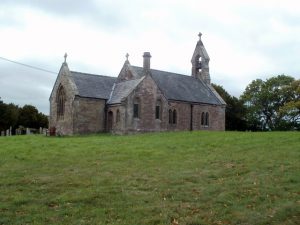The number of people who class themselves as religious in the UK is falling. Despite that, there are still thousands of people heading to temple, mosque, church or synagogue to worship. Every large religious organisation has many hundreds of paid and volunteer staff. What sorts of disclosure checks do these people need, and do the same rules apply to religious workers as any other person?
Disclosure Checks for Religious Leaders
 When it comes to the person in charge of a church or other place of worship, the type of disclosure will depend on the role. Most religious leaders’ work is not just limited to a few services a week. Rabbis, imams and priests spend a lot of time in the community too. They visit the sick, see people in their own homes and carry out a whole host of other duties too. A lot of this “pastoral care” falls under the umbrella of regulated activity in terms of DBS. Someone going into a house to visit a very elderly person in a professional capacity, or running an after school Bible club needs an enhanced DBS check.
When it comes to the person in charge of a church or other place of worship, the type of disclosure will depend on the role. Most religious leaders’ work is not just limited to a few services a week. Rabbis, imams and priests spend a lot of time in the community too. They visit the sick, see people in their own homes and carry out a whole host of other duties too. A lot of this “pastoral care” falls under the umbrella of regulated activity in terms of DBS. Someone going into a house to visit a very elderly person in a professional capacity, or running an after school Bible club needs an enhanced DBS check.
Barred lists may also apply in these cases. Barred lists hold the names of people who have committed serious crimes and have been legally blocked from working with children, adults or both. Churches will have their own procedures and policies about child protection and safeguarding.
Other Roles
Of course it’s not just the rabbi or vicar who is involved in the running of their place of worship. They will be supported by an army of other staff too. Volunteers might help out with both the religious services, and other duties. Again, whether they need disclosure depends on the type of role. Any activity which involves children under the age of 18, or adults who could be classed as vulnerable will fall into “regulated activity”. Most churches in the UK have some sort of centralised office. There will be a staff member in the office whose job it is to keep on top of changes in rules about disclosure and to give advice. There is also lots of information online, and the DBS also has a telephone helpline for questions.
Applying for DBS Checks
Usually, a staff member will apply for a DBS check with one specific religious organisation. If they then want to cover the duties of another priest or rabbi, then they won’t need another check to carry out similar duties. If a school or hospital asks a religious leader in to speak to children or patients, different rules may apply. Charges apply to paid workers in religious organisations just as they do to everyone else.
One handy way of cutting the costs of repeat disclosure checks is signing up for the DBS Update service. There is an annual subscription to remain a member. The service gives instant access to the DBS database, ensuring your record is always current. For people who move regularly between jobs, being a member can cut delays in processing new checks.